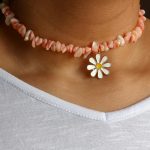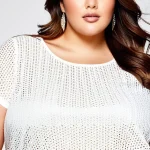Overview of Eco-Chic Fabric Trends in UK Women’s Fashion
Eco-chic UK fashion is rapidly evolving as sustainable fabric trends gain momentum in women’s eco fashion. This shift is driven by growing consumer awareness about environmental impacts and the desire for ethically produced garments. In the UK, eco-conscious fashion embraces materials that reduce waste and lower carbon footprints, reflecting a wider commitment to sustainability.
Top fabric innovations include recycled fibres, organic cotton blends, and plant-based textiles, which are increasingly adopted by UK brands. These materials balance style with responsibility, offering alternatives that appeal to environmentally aware women without compromising aesthetics or quality. Adoption rates are climbing as consumers prioritize sustainability during purchases.
Also to discover : Perfecting your base: key tips to prevent foundation-induced dry skin flakes
Consumer demand holds significant sway in shaping eco-chic UK fashion trends. Shoppers seek transparency about fabric origins, pushing brands to embrace sustainable textiles and innovate production methods. This dynamic underlines how fashion choices can promote environmental stewardship. As a result, sustainable fabric trends are not just a niche but an integral part of the UK women’s fashion scene, fostering a future where eco-fashion thrives through conscious consumption and innovation.
Recycled Textiles: Types and Their Environmental Benefits
Exploring recycled fibres is essential to understanding sustainable textiles in women’s eco fashion. In the UK, recycled fabrics primarily include plastic-based materials like recycled polyester, regenerated nylon, and repurposed cotton blends. These textiles result from reprocessing post-consumer or industrial waste, reducing reliance on virgin resources and curbing landfill contributions.
Also to discover : Master concealer techniques: banish under-eye creases for a luminous finish
The environmental impact of recycled fibres is substantial. By reusing existing materials, these fabrics significantly cut carbon emissions compared to conventional manufacturing. They also help mitigate textile waste—one of the fastest-growing global concerns—by diverting plastics and natural fibres from disposal sites. For example, recycled polyester alone can lower energy use by up to 75% versus new polyester production.
Despite these benefits, recycled textiles face challenges. Quality consistency can vary, affecting durability and feel, which complicates adoption among UK sustainable brands. Additionally, recycling processes sometimes involve chemicals or energy consumption requiring optimization to maximize eco-advantages. Limited consumer awareness about recycled fabric differences further restrains demand growth.
Nonetheless, the focus on recycled fibres continues to grow as part of broader sustainable fabric trends in women’s eco fashion. These materials form a practical solution to environmental pressures, supporting eco-chic UK fashion’s goal of balancing style, sustainability, and responsibility.
Leading UK Brands and Designers Pioneering Recycled Fabrics
UK sustainable fashion brands are at the forefront of integrating recycled fibres into stylish, market-ready collections. Designers focused on eco-conscious practices craft garments that reflect innovation in women’s eco fashion, emphasizing both aesthetic appeal and environmental responsibility. Brands like Stella McCartney and smaller niche labels champion recycled fabrics, demonstrating their versatility and commercial viability.
These eco designers create collections that visibly reduce textile waste and inspire consumer trust in eco-chic UK fashion. For example, some collections employ regenerated nylon and recycled polyester to produce durable yet fashionable items, boosting adoption rates and mainstream acceptance. This trend signals a shift where sustainability and creativity intersect, allowing brands to differentiate themselves in a competitive market.
Through these efforts, recycled fabric collections influence both luxury fashion and high-street outlets, encouraging wider industry commitment. The growing visibility of recycled textiles in UK collections also answers consumer demand for transparency and ethical sourcing. By showcasing these materials prominently, leading brands help normalize sustainable fabric trends and amplify their environmental impact, reinforcing the positive cycle of eco-conscious production and consumption.
Sustainable Fabric Manufacturing Processes and Certifications
Understanding sustainable manufacturing in UK women’s eco fashion requires examining how recycled fibres transform into quality textiles. Production typically involves collecting post-consumer waste, sorting, cleaning, and mechanically or chemically processing materials into fibres ready for fabric creation. These steps reduce raw resource consumption and minimize waste output. However, processes vary by fibre type; for instance, recycled polyester often involves melting plastic bottles, while regenerated nylon repurposes fishing nets.
Certifications provide crucial assurance of genuine eco credentials. In the UK textile standards arena, labels such as the Global Recycled Standard (GRS) and OEKO-TEX certify fabric content, chemical safety, and environmental management. The GRS verifies recycled content and responsible social practices, while OEKO-TEX ensures textiles are free from harmful substances. These certifications act as reliable markers for consumers seeking authentic sustainable textiles.
Transparency and traceability are becoming essential in supply chains. UK brands increasingly share detailed sourcing information, fostering consumer trust in eco-chic UK fashion. Traceable production not only underpins environmental accountability but also discourages greenwashing by verifying claims about sustainable fabric trends. Such openness promotes industry-wide improvements and empowers shoppers to make informed, ethical choices in women’s eco fashion.
How to Identify and Shop for Eco-Chic Recycled Fashion in the UK
Finding authentic recycled fabrics within the UK’s eco-chic fashion landscape requires keen awareness of material quality and certification. When buying sustainable fashion, shoppers should look for clear labels indicating recycled content, such as those verified by Global Recycled Standard (GRS) or OEKO-TEX. These marks assure that textiles meet strict environmental and social criteria, helping consumers distinguish truly responsible choices from greenwashed products.
In addition, understanding fabric characteristics can aid in identifying recycled fabrics. For example, recycled polyester often retains a similar feel to virgin polyester but may show slight texture variations due to its origin from post-consumer waste. Reading product descriptions attentively and asking brands about sourcing can clarify manufacturing transparency, which is vital in women’s eco fashion.
For those new to eco fashion shopping, several UK retailers specializing in sustainable textiles provide curated selections focusing on recycled fibres. Building a wardrobe around these pieces involves prioritizing durability and versatility. Investing in timeless designs made from recycled materials supports environmental goals and aligns consumer habits with the growing momentum of eco-chic UK fashion. Engaging actively in this market encourages brands to expand sustainable fabric trends further, fostering an industry-wide shift toward conscious consumption.







